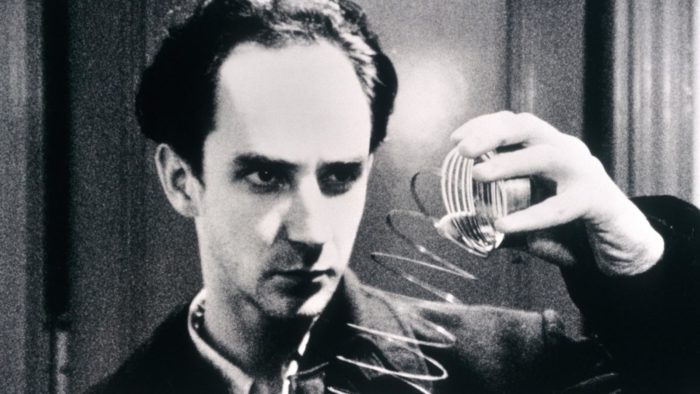
“When your mind becomes obsessed with anything, you will filter everything else out and find that thing everywhere.” These words spoken by Mark Margolis’ Sol echo through Pi, the feature debut of Darren Aronofsky. It is the story of Max Cohen (Sean Gullette), a mathematical genius who becomes obsessed with finding the numerical pattern that can explain everything. Unemployed and socially isolated, Max suffers through his daily life as he fights through terrible headaches and screams at his computer as he searches for that pattern in the stock market. Unfortunately for him, he might actually be getting close to finding the number at the center of everything, feeding his obsession and bringing a world of trouble.
One of the most positive relationships in Max’s life is with Sol, his mentor. Sol spent his career trying to find a pattern in pi (you know, this thing: π) but eventually gave up and retired. Now the two meet every month to play the Japanese board game Go and to give Sol a chance to give Max advice. But a couple other groups want Max’s advice. One is Lenny (Ben Shenkman), a Hasidic Jew who is doing mathematical research on the Torah and keeps running into Max at his favorite coffee shop. The other is Marcy Dawson (Pamela Hart), who represents a wall street firm that is interested in Max’s ability to predict the markets.
When Max’s computer seemingly suffers a horrible glitch, it prints out two highly unlikely predictions and a gibberish string of 216 digits. This infuriates Max, who believes all his progress was wasted. He trashes his computer, throws the printout away, and goes to Sol, who warns him that he had seen the same number before and begs Max to take a break. But when Max finds out that the two picks were right, he becomes desperate to find the printout, but it’s gone from the garbage can he threw it in. That’s when he runs into Marcy again, who offers to give him a classified computer chip for the rights to his work. He agrees, and points the chip toward the Torah, which gives him that exact 216-digit string again.
Things go pretty crazy from there, as Max deals with evil corporations, secret societies, and just good ol’ fashioned madness. The question is, what is this number? Is it the secret pattern of the stock market? Is it the true name of god? Is it gibberish, a random string that feeds Max’s mania? No matter what you think, it’s definitely a bad number to be around, as shit gets real hard for our guy before it all comes to a head at the climax.
Pi doesn’t have much interest in subtlety, but maybe that’s OK for a movie that expects you to have a working knowledge of irrational numbers. Here’s an example: Sol (who is named after the sun) often brings Max’s attention to his fish, which he named Icarus. Yep, I get it. This direct approach is complimented by the decision to shoot the film in high-contrast black and white, which leaves very few shades of grey. It’s a perfectly fine choice, anyone who complains about black and white isn’t tough enough for cinema.
This film was the launchpad for Darren Aronofsky, who would go on to continue exploring this psychological thriller space in many of his films like Requiem for a Dream and Black Swan. There’s some pretty great brain-related body horror in Pi that I don’t want to spoil by describing but does seem very Aronofsky. This was also his first collaboration with Clint Mansell, who would go on to score all of his movies. It’s a pretty great soundtrack, very late-Nineties trip hop but in a good way. Check out the main theme, πr² for a taste.
Who knew math could be so scary!


